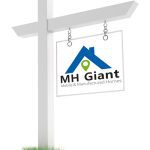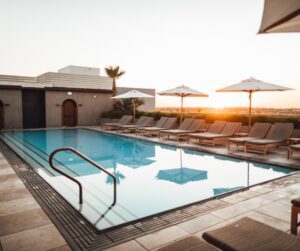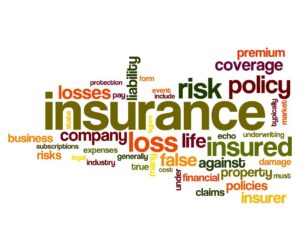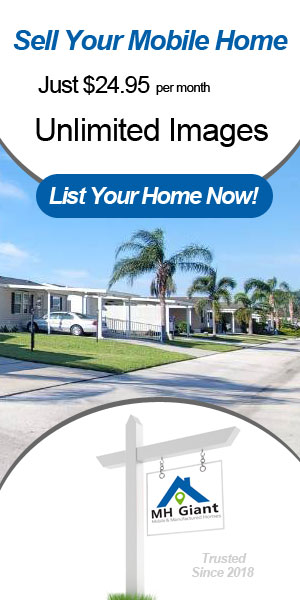14 Tips on How to Choose the Right Manufactured Home Park
Finding the perfect manufactured home park can be a life-changing decision, one that affects not only your lifestyle but also your financial well-being and sense of community. With the growing popularity of manufactured homes as a cost-effective and flexible housing solution, many people are discovering the benefits of living in manufactured home parks.
In this comprehensive guide, we’ll explore every aspect of selecting the ideal manufactured home park. From evaluating location and amenities to considering financial factors and understanding community dynamics, this guide will provide you with the tools you need to make an informed decision on how to choose the right manufactured home park.
Table of Contents
1. Understanding Manufactured Home Parks
Before diving into the specifics of what to look for in a manufactured home park, it’s important to have a clear understanding of what a manufactured home park is and how it functions.
A manufactured home park is a residential community where individuals or families own or rent manufactured homes and lease the land on which their homes are located. Manufactured homes, also known as mobile homes, are prefabricated structures that are built off-site and transported to a location where they are installed.
Manufactured home parks vary widely in size, amenities, and overall atmosphere. Some are small, quiet communities with few amenities, while others may be larger, resort-style parks offering a wide range of services and recreational facilities. Depending on your preferences, budget, and lifestyle needs, the type of park you choose can greatly affect your living experience.
Key Features of Manufactured Home Parks:
- Land Leasing: In most manufactured home parks, residents own their home but lease the land, which typically includes access to community amenities and services.
- Community Rules: Parks usually have specific rules and regulations governing the upkeep of homes, behavior, and communal living.
- Amenities: Many parks offer amenities such as clubhouses, pools, fitness centers, walking trails, and even organized activities.
- Maintenance: The park management is responsible for maintaining common areas, infrastructure, and often provides services like garbage collection or lawn care.
2. The Importance of Location for How to Choose the Right Manufactured Home Park.
The location of your manufactured home park is one of the most critical factors to consider when making your decision. The right location can enhance your lifestyle, increase your home’s value, and ensure that you’re close to essential services and attractions.
Proximity to Essential Services
When evaluating a park’s location, consider how close it is to essential services such as: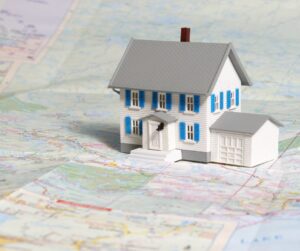
- Hospitals and Medical Facilities: Being close to healthcare providers is especially important if you have ongoing medical needs or are approaching retirement age.
- Schools: If you have children or are planning to in the future, it’s important to look at the quality of nearby schools. Even if you don’t have children, homes located near good schools tend to retain their value better.
- Shopping and Groceries: Convenience is key, so look for parks that are located near grocery stores, pharmacies, and other retail outlets that you frequent.
- Public Transportation: If you don’t drive or prefer to use public transportation, check the availability of buses, trains, or other transit options near the park.
Neighborhood and Surroundings
It’s important to understand the neighborhood surrounding the park. A park located in a quiet, peaceful area may appeal to some, while others may prefer a more urban setting close to restaurants, entertainment, and shopping. Consider the following when evaluating the surrounding area:
- Crime Rates: Safety is a primary concern for everyone. Research the crime rate in the area to ensure that the park is located in a secure neighborhood.
- Noise Levels: Visit the park at different times of the day and week to assess the noise levels. Parks located near highways, railroads, or busy commercial areas may experience high noise levels, which could disrupt your peace and quiet.
- Traffic and Accessibility: Consider how easy it is to access the park. Is it close to major roads and highways, or will you have to navigate difficult routes to reach your home? Also, check for congestion or traffic problems in the area.
Climate and Weather Considerations
The climate of the region where the park is located plays an essential role in determining the comfort and maintenance needs of your home. Consider the following climate-related factors:
- Temperature Extremes: Does the park experience very hot summers or cold winters? Extreme temperatures can affect your comfort and the cost of maintaining your home.
- Natural Disasters: Some regions are more prone to natural disasters such as hurricanes, tornadoes, earthquakes, or floods. If you’re moving to an area that experiences these events, ensure the park has safety measures in place, and consider additional insurance for your home.
3. Types of Manufactured Home Parks
Manufactured home parks come in various types, each catering to different demographics, lifestyles, and needs. Understanding the different types will help you narrow down your choices and find the park that’s best suited to your preferences.
55+ Retirement Communities
These parks are specifically designed for residents aged 55 and older, providing a peaceful and often upscale living environment. Many retirees prefer 55+ communities because of the quieter atmosphere, social activities tailored to seniors, and the camaraderie of living among peers.
prefer 55+ communities because of the quieter atmosphere, social activities tailored to seniors, and the camaraderie of living among peers.
- Pros: Quiet, age-appropriate amenities, typically more secure, often include social clubs and activities geared toward retirees.
- Cons: Restricted to older residents, may have higher fees or property costs, and fewer opportunities for families or younger adults.
Family-Friendly Communities
Family-friendly manufactured home parks cater to residents of all ages, including children and young families. These parks often feature playgrounds, pools, and other amenities designed for families.
- Pros: Amenities for children, family-friendly atmosphere, diverse community.
- Cons: Can be noisier due to children and young families, rules may be stricter regarding home upkeep and behavior.
Resort-Style Communities
Resort-style parks are typically high-end communities offering luxurious amenities, such as golf courses, tennis courts, swimming pools, and on-site restaurants. These parks are ideal for those seeking a more upscale living experience.
- Pros: Access to premium amenities, and beautiful landscapes, often located in desirable vacation destinations.
- Cons: Higher lot rent and fees, may cater to seasonal residents, more expensive to purchase a home.
Co-op and Resident-Owned Communities (ROCs)
In a resident-owned community (ROC), the homeowners own the land collectively. This type of community is often organized as a cooperative or condominium association, where residents share responsibility for the land and common areas.
- Pros: Stability of land ownership, residents have a say in park management, lower monthly fees as there’s no outside landlord.
- Cons: Higher upfront costs due to purchasing a share in the co-op, potential for disagreements among residents.
Seasonal and Vacation Communities
Some manufactured home parks cater to seasonal residents, such as snowbirds who live in the park during the winter months and move elsewhere during the summer. These communities often feature a high turnover of residents but offer seasonal amenities and services.
- Pros: Ideal for part-time residents, flexible living arrangements, often located in desirable vacation destinations.
- Cons: May lack year-round services or amenities, possible lack of community cohesion.
4. Financial Considerations
Affordability is a key factor in choosing the right manufactured home park. From upfront costs to ongoing monthly expenses, you’ll need to consider how the financial aspects of living in the park fit into your budget.
Lot Rent vs. Land Ownership
One of the primary financial considerations is whether you’ll be renting the land or owning it.
- Lot Rent (Leasing): In most manufactured home parks, you own your home but lease the land it sits on. Lot rent typically includes maintenance of common areas, property taxes, utilities, and access to amenities. However, lot rent can vary widely depending on the park’s location, size, and amenities. It’s essential to budget for these ongoing monthly payments, which can increase over time.
- Land Ownership: In some parks, you have the opportunity to purchase the land along with your home. This can be more expensive upfront but eliminates the need for monthly lot rent. Owning the land also provides greater stability and can increase the value of your home.

Upfront Costs
In addition to the cost of purchasing your manufactured home, you’ll need to factor in other upfront costs, such as:
- Home Purchase: Whether you’re buying a new or pre-owned manufactured home, the purchase price will vary depending on the size, model, age, and condition of the home.
- Down Payment and Financing: If you’re financing your home, consider the down payment required and shop around for the best interest rates. Manufactured home loans may have different terms than traditional mortgages, so it’s important to understand your financing options.
- Closing Costs: If you’re purchasing land in addition to your home, there may be closing costs associated with the land purchase, including title fees, taxes, and recording fees.
Ongoing Monthly Expenses
Beyond the initial costs, there are several ongoing monthly expenses to consider when living in a manufactured home park:
- Lot Rent: As mentioned earlier, lot rent will be a significant portion of your monthly expenses if you’re leasing the land. Be sure to understand what’s included in the rent (e.g., utilities, garbage collection, maintenance) and if there are any additional fees.
- Utilities: Depending on the park, utilities such as water, electricity, and gas may be included in your lot rent or billed separately. It’s important to get a clear understanding of how utilities are handled in the park and how much you can expect to pay each month.
- Homeowners Association (HOA) Fees: Some parks, particularly those in upscale or resort-style communities, charge HOA fees to cover maintenance and amenities. These fees can vary widely, so make sure they fit within your budget.
Property Taxes and Insurance
Don’t forget to factor in the cost of property taxes and insurance for your manufactured home.
- Property Taxes: In some cases, property taxes may be included in your lot rent, while in others, you may be responsible for paying taxes on your home separately. It’s important to ask about the tax structure in the park.
- Insurance: Manufactured home insurance is essential for protecting your investment. The cost of insurance will depend on factors such as the value of your home, its location, and the coverage you choose. Be sure to get quotes from multiple insurance providers and include this expense in your monthly budget.
5. Amenities to Look For
One of the most appealing aspects of living in a manufactured home park is access to amenities that enhance your quality of life. However, not all parks offer the same level of amenities, so it’s important to consider which ones are most important to you.
Basic Amenities
At a minimum, most parks will offer basic amenities such as:
- On-Site Management: A well-managed park will have an on-site manager or office to handle any issues that arise, such as maintenance requests or rule enforcement.
- Maintenance of Common Areas: Look for parks that take pride in maintaining clean, well-kept common areas, such as streets, sidewalks, and landscaping.
- Garbage Collection: Most parks include regular garbage collection as part of the lot rent.
- Parking: Ensure that the park provides adequate parking for residents and guests, especially if you have multiple vehicles.
Recreational Amenities
Many parks go beyond the basics and offer recreational amenities that enhance your lifestyle, such as:
- Clubhouses: A clubhouse is a central gathering place for residents to socialize, host events, and participate in activities. It’s a great amenity if you enjoy community interaction.

- Swimming Pools: A pool can be a major draw, especially in warmer climates. If you enjoy swimming or lounging by the pool, this is an amenity to look for.
- Fitness Centers: Parks that offer fitness centers or workout rooms can save you the cost of a gym membership and make it easier to stay active.
- Walking Trails: Parks with walking trails or green spaces provide opportunities for exercise and relaxation in a natural setting.
- Tennis or Basketball Courts: If you enjoy sports, look for parks with recreational facilities such as tennis, pickleball, or basketball courts.
- Playgrounds: If you have children or grandchildren, a playground can be an essential amenity.
Social and Lifestyle Amenities
Some parks cater to residents who enjoy an active social life by offering organized activities and events, such as:
- Social Clubs: Many parks have clubs or groups focused on activities such as gardening, book clubs, card games, or crafting.
- Community Events: Some parks host regular events such as holiday parties, potlucks, or movie nights, giving residents the opportunity to interact and build a sense of community.
- Pet-Friendly Amenities: If you have pets, look for parks that are pet-friendly and may even offer dog parks or designated pet areas.
Convenience Services
Some parks offer additional services to make daily life more convenient for residents:
- On-Site Laundry Facilities: If your home doesn’t have a washer and dryer, having access to on-site laundry facilities can be a major convenience.
- Shuttle Services: Some parks, particularly those catering to seniors, offer shuttle services to nearby shopping centers, medical facilities, or entertainment venues.
- Mail and Package Services: In larger parks, there may be a central mail and package facility where residents can receive their deliveries securely.
6. Rules, Regulations, and Park Management
Each manufactured home park operates under its own set of rules and regulations, which govern everything from home maintenance to behavior within the community. These rules are typically enforced by the park management, so it’s essential to understand the park’s policies before committing to live there.
Park Rules and Regulations
When choosing a park, request a copy of the park’s rules and regulations. These documents will outline the park’s policies on various topics, such as:
- Home Maintenance: Many parks have specific rules regarding the upkeep of homes and yards. For example, you may be required to keep your home freshly painted, maintain your lawn, or adhere to specific landscaping guidelines.
- Noise Restrictions: Parks may have noise ordinances that dictate quiet hours or limit the use of loud equipment or music.
- Pet Policies: If you have pets, make sure to review the park’s pet policies. Some parks have restrictions on the size, breed, or number of pets allowed.
- Parking Rules: Many parks have strict parking rules, including where residents and guests can park. Be sure to understand the parking policies and whether they align with your needs.
Park Management and Resident Relations
The quality of park management can significantly affect your experience as a resident. Good management ensures that the park is well-maintained, rules are enforced fairly, and any issues that arise are addressed promptly.
- On-Site vs. Off-Site Management: Parks with on-site management typically provide quicker responses to residents’ concerns. Off-site management may lead to slower response times, especially if the park is large or has complex infrastructure needs.
- Communication: Effective communication between management and residents is key to maintaining a harmonious community. Look for parks that regularly update residents on upcoming events, maintenance schedules, or policy changes through newsletters, email, or a community bulletin board.
- Responsiveness: When touring a park, pay attention to how management interacts with residents. Are they responsive to concerns? Do they seem approachable? These factors can greatly influence your quality of life in the park.
Enforcement of Rules
While it’s important for a park to have rules in place, it’s equally important that these rules are enforced consistently and fairly. A well-managed park will have clear procedures for handling violations, such as:
- Warnings and Fines: Many parks issue warnings or fines for rule violations. Make sure you understand the consequences of breaking the park’s rules and whether they seem reasonable.
- Conflict Resolution: Find out how the park handles conflicts between residents or disputes with management. Does the park have a formal process for resolving issues? Knowing that there is a fair and transparent system in place can give you peace of mind.
7. Community and Social Aspects
The sense of community in a manufactured home park can greatly affect your overall satisfaction with your living environment. Some parks foster tight-knit, friendly communities where neighbors look out for one another, while others may be more isolated or transient in nature.
Social Opportunities
If social interaction and community involvement are important to you, look for parks that actively promote social opportunities. Parks with clubhouses, organized activities, and regular community events tend to foster a stronger sense of community.
- Clubs and Groups: Many parks have clubs or groups that focus on specific activities, such as gardening, quilting, or book clubs. Joining these groups can help you build friendships and feel more connected to your neighbors.
- Community Events: Parks that host regular events, such as holiday parties, potlucks, or game nights, provide opportunities for residents to come together and socialize.

Resident Demographics
The demographics of the park’s residents can play a significant role in your experience. Some parks cater primarily to retirees, while others are more family-oriented or attract a mix of ages.
- Age Range: If you’re looking for a quieter, more relaxed environment, you may prefer a 55+ community. If you have children or prefer a more dynamic atmosphere, a family-friendly park may be a better fit.
- Full-Time vs. Part-Time Residents: Some parks have a high percentage of seasonal or part-time residents, especially in areas popular with snowbirds. If you’re looking for a more permanent community, be sure to ask about the percentage of full-time residents in the park.
Sense of Community
When touring a park, observe how the residents interact with one another. Do they seem friendly and welcoming? Are there opportunities for socializing and building relationships with neighbors?
- Welcoming Atmosphere: A welcoming community can make a big difference in how quickly you feel at home. Look for parks where residents greet one another, share resources, and participate in community activities.
- Longevity of Residents: Parks with long-term residents often have a stronger sense of community, as people have built relationships over time. If possible, ask about the average length of time residents have lived in the park.
8. Safety and Security
Feeling safe and secure in your home is essential, and the safety measures in place at the manufactured home park you choose can significantly impact your peace of mind.
Security Measures
Different parks have varying levels of security, and it’s important to choose a park that aligns with your personal safety preferences. Common security features to look for include:
- Gated Entry: Some parks have gated entrances that require a keycard, code, or permission from residents to enter. This can help keep out unwanted visitors and provide an extra layer of security.
- Security Patrols: Larger parks or those located in higher-risk areas may employ security guards or have regular patrols to monitor the community.
- Lighting: Ensure that the park is well-lit, especially in common areas, walkways, and parking lots. Proper lighting can help deter crime and make residents feel safer when walking around at night.
- Security Cameras: Some parks have surveillance cameras installed in common areas, entrances, and parking lots. While not a substitute for personal vigilance, cameras can help deter crime and provide valuable evidence if an incident occurs.
Crime Rates and Neighborhood Safety
Before choosing a park, research the crime rate in the surrounding area. Even if the park itself feels secure, being located in a high-crime neighborhood can affect your overall sense of safety.
- Local Crime Statistics: Many local police departments or online databases provide crime statistics for specific neighborhoods. Look for low rates of property crime, theft, and violent crime.
- Neighborhood Reputation: Talk to residents and park management about the safety of the surrounding neighborhood. Are there any known issues with crime or vandalism in the area?
9. Utilities and Infrastructure
The quality and reliability of utilities and infrastructure in a manufactured home park can have a major impact on your daily life. Make sure to evaluate the park’s utility systems and infrastructure before making a decision.
Utilities
Most manufactured home parks provide essential utilities such as water, electricity, and sewage services, but it’s important to understand how these utilities are handled and billed.
- Water and Sewer Systems: Ensure that the park has reliable water and sewer systems. In some areas, parks may rely on well water or septic systems, which can require more maintenance. Be sure to ask about the quality of water and how often sewer systems are maintained.
- Electricity: Find out whether electricity is included in your lot rent or billed separately. In some parks, residents may have the option to choose their own electricity provider, while others may be limited to a specific service.
- Gas: If your home uses natural gas or propane, inquire about the availability and cost of gas service in the park.
Infrastructure
The condition of the park’s infrastructure, such as roads, sidewalks, and drainage systems, can significantly affect your quality of life.
- Road Maintenance: Well-maintained roads and sidewalks are essential for safety and convenience. Look for parks that regularly maintain their roads and ensure they are free of potholes, cracks, and other hazards.
- Drainage: In areas prone to heavy rain, poor drainage can lead to flooding or water pooling in common areas. Make sure the park has proper drainage systems in place to prevent flooding.
- Internet and Cable: High-speed internet and cable access may be important to you, especially if you work from home or enjoy streaming entertainment. Ask about the availability of internet service providers and whether high-speed internet is available in the park.
10. Environmental Factors and Natural Disasters
Living in a manufactured home park means that you need to consider the environmental factors that can affect the safety and durability of your home. Different regions have unique environmental risks, and it’s essential to choose a park that is well-prepared for natural disasters.
Flood Zones
If the park is located in a flood-prone area, you’ll need to take extra precautions to protect your home from flood damage.
- Flood Insurance: Check whether the park is located in a designated flood zone, and if so, make sure you have adequate flood insurance. Most standard homeowners insurance policies do not cover flood damage, so you’ll need to purchase a separate policy through the National Flood Insurance Program (NFIP) or a private insurer.

- Drainage and Elevation: If the park is in a flood zone, find out if the homes are elevated or if the park has special drainage systems in place to prevent flooding.
Wildfires
In regions prone to wildfires, it’s important to choose a park that has fire safety measures in place.
- Firebreaks: Some parks may have firebreaks or cleared areas that help slow the spread of wildfires. Ask park management about the steps they’ve taken to reduce wildfire risk.
- Evacuation Plans: In wildfire-prone areas, it’s essential to have a clear evacuation plan in case of an emergency. Find out if the park has an established evacuation route and procedures in place for notifying residents.
Tornadoes and Hurricanes
If you’re moving to an area prone to tornadoes or hurricanes, your manufactured home must be secured to withstand strong winds.
- Wind Ratings: Manufactured homes are built to specific wind zone ratings. Make sure your home meets the local wind zone requirements, especially if you live in a high-risk area.
- Hurricane Straps and Anchors: In hurricane-prone areas, your home should be equipped with hurricane straps or anchors to secure it to the ground. These measures can help prevent your home from being damaged or displaced by strong winds.
Earthquakes
For residents in earthquake-prone areas, securing your home against seismic activity is crucial.
- Earthquake Insurance: Standard homeowners insurance typically doesn’t cover earthquake damage, so you may need to purchase a separate earthquake insurance policy.
- Foundation and Anchoring: Homes in earthquake zones should be securely anchored to their foundations to prevent movement during seismic activity. Ask the park management about the measures they’ve taken to protect homes from earthquake damage.
11. Future Planning and Long-Term Considerations
When choosing a manufactured home park, it’s important to think beyond your immediate needs and consider how your living situation may evolve over time.
Potential for Home Appreciation or Depreciation
The value of your manufactured home can be affected by the overall market and the quality of the park where it’s located. Homes in well-managed parks with strong amenities and good locations tend to retain their value better over time.
- Park Reputation: A park’s reputation can have a significant impact on home values. Parks that are well-maintained, with a strong sense of community and good management, are more likely to see home values appreciate.
- Market Trends: Research the local housing market to understand how manufactured homes are valued in the area. In some regions, manufactured homes are highly sought after, while in others, they may depreciate more quickly.
Long-Term Park Viability
Consider the long-term viability of the park itself. Some parks may be at risk of closing or being redeveloped, which could force you to relocate your home.
- Ownership Stability: Find out who owns the park and how stable the ownership is. Parks owned by large corporations or investment groups may be more likely to raise lot rent or sell the property, while resident-owned communities (ROCs) offer more stability.
- Redevelopment Risk: In some areas, manufactured home parks are at risk of being redeveloped into commercial or residential projects. Ask about the park’s long-term plans and whether there have been any discussions of redevelopment.
Future Personal Needs
As your life circumstances change, so too may your needs for housing and community.
- Retirement Plans: If you’re approaching retirement, consider whether the park offers the amenities and services you’ll need as you age. Some parks cater specifically to seniors and offer services such as shuttle buses, meal programs, or on-site healthcare.
- Growing Families: If you plan to have children or expand your family, make sure the park is family-friendly and offers amenities such as playgrounds, schools, or childcare services.
- Resale Potential: Consider how easy it will be to sell your home if you decide to move in the future. Homes in desirable parks with strong amenities and good locations tend to sell more quickly and retain their value better.
12. Touring and Evaluating Parks
One of the best ways to evaluate a manufactured home park is to visit it in person. Touring the park gives you an opportunity to see the homes, meet the residents, and get a feel for the community. Here are some tips for evaluating parks during your visit:
Visual Appeal and Cleanliness
As you tour the park, pay attention to its overall appearance and cleanliness.
- Curb Appeal: Are the homes and yards well-maintained? Is the landscaping attractive? Parks with good curb appeal tend to have more pride of ownership and are better maintained overall.
- Cleanliness: Are the streets and common areas clean? Is trash properly disposed of, or are there signs of neglect?
Common Areas and Amenities
Take a tour of the park’s common areas and amenities to see if they meet your needs.
- Clubhouse and Pool: If the park has a clubhouse or pool, check their condition. Are they clean and well-maintained? Are they used frequently by residents?
- Fitness Center: If fitness is important to you, check out the park’s fitness center. Is it well-equipped and clean?
- Walking Trails and Playgrounds: If the park has walking trails, playgrounds, or other outdoor amenities, take a walk around and see if they are well-maintained and safe.
Resident Interactions
During your tour, take the opportunity to speak with current residents. Ask them about their experience living in the park.
- Resident Feedback: How do residents feel about the park? Are they happy with the management and amenities? Do they feel safe and secure?
- Sense of Community: Pay attention to how residents interact with one another. Is there a sense of community and friendliness, or do residents seem isolated?
Management and Office Staff
While touring the park, make sure to meet with the management team. Ask them questions about the park’s policies, maintenance, and future plans.
- Professionalism: Are the office staff and management professional and courteous? Do they seem knowledgeable about the park’s rules and services?
- Availability: How easy is it to reach management if you have a problem? Is there an on-site manager or office that’s open during regular hours?
13. Red Flags to Watch For
While touring manufactured home parks, it’s important to keep an eye out for potential red flags that could indicate problems with the park or management. Here are some warning signs to watch for:
Poor Maintenance
If the park appears neglected or poorly maintained, this could be a sign of underlying issues with management or funding.
- Cracked Roads or Sidewalks: Potholes, cracked roads, or crumbling sidewalks can be a sign that the park isn’t investing in necessary maintenance.
- Overgrown Lawns: If the lawns and landscaping are overgrown or littered with debris, this could indicate neglect.
- Dilapidated Common Areas: Common areas such as clubhouses, pools, or playgrounds that are in poor condition or closed for long periods may indicate that the park doesn’t have the resources to maintain its amenities.
Frequent Turnover of Residents
If there’s a high turnover of residents or many vacant lots in the park, this could be a sign of dissatisfaction or instability.
- Vacant Homes: A large number of vacant homes or lots can indicate that residents are leaving the park due to dissatisfaction or financial issues.
- Frequent Home Sales: If many homes in the park are for sale, it’s worth asking why so many residents are moving out.
Management Issues
Pay close attention to how the park is managed and how management interacts with residents.
- Unresponsive Management: If management seems unresponsive or disorganized, this could indicate future problems with maintenance or rule enforcement.
- Disagreements with Residents: If you hear complaints from residents about how management handles issues, this could be a red flag.
14. Making the Final Decision
After touring multiple parks and gathering all the information you need, it’s time to make a final decision. Consider all of the factors we’ve discussed, including location, amenities, financial considerations, and community atmosphere.
Compare Parks and Prioritize
Make a list of the parks you’ve visited and compare them based on the criteria that are most important to you. Prioritize parks that offer the amenities, safety, and community you’re looking for, while also fitting within your budget.
Trust Your Gut
Ultimately, you should choose a park that feels like home. If a park has everything you’re looking for but doesn’t feel right, it may not be the best fit for you. Trust your instincts and choose a park where you’ll feel comfortable and happy.
Choosing the right manufactured home park is a significant decision that can greatly impact your lifestyle and long-term satisfaction. By carefully considering factors such as location, amenities, financial obligations, safety, and community, you can find a park that meets your needs and provides a comfortable, enjoyable living environment.
Take your time touring parks, speaking with residents, and evaluating your options. With the right information and approach, you’ll be well-equipped to make an informed decision and find the perfect manufactured home park for you.
